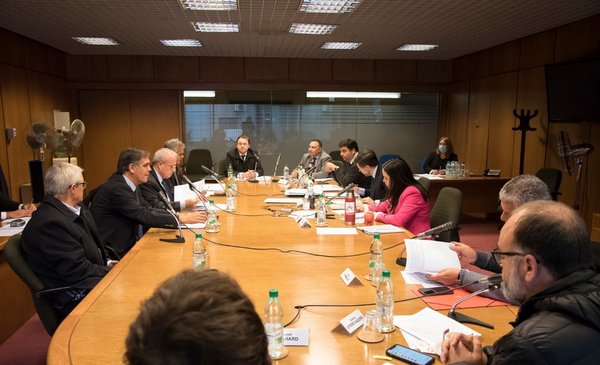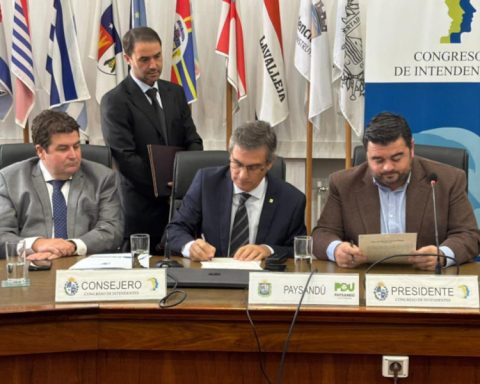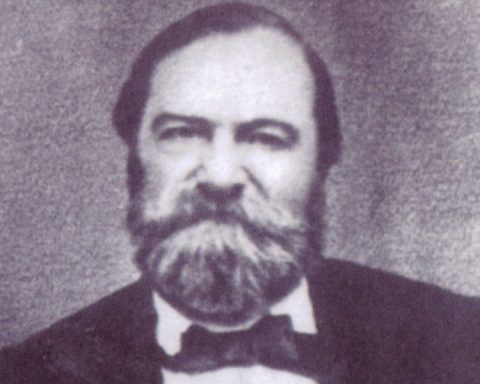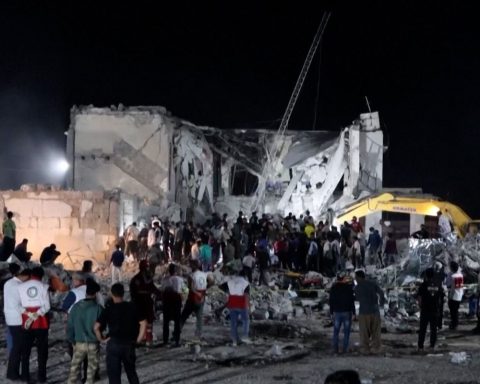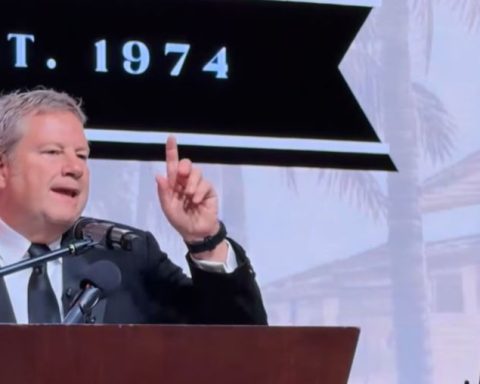The Business Chambers “accept the progress” but raise a series of “pending issues” regarding the bill that the government sent to Parliament to modify Collective Bargaining in the private sector. Its objective: to raise the observations applied to Uruguay by the International Labor Organization (ILO) in the face of a complaint, precisely from the employer sector, filed 13 years ago.
The text began to be analyzed in the Labor Legislation Commission of the Chamber of Deputies. The bench of the government coalition is willing to vote on the text and wants a quick procedure, while the Broad Front rejects it and proposes a deep discussion of the initiative.
“We celebrate the advances that arise”, The president of the Chamber of Industries, Alfredo Antía, highlighted before the legislators. In particular, he valued the proposal that, in those companies where there is no union, the workers themselves be the ones who designate their representatives to negotiate in a bipartite manner and that this task not be in charge, as it has been up to now, of the unions of branch.
In any case, the businessmen “suggested” that these representatives be recognized and legitimated, as established in ILO Convention 135. This was stated by the legal manager of the National Chamber of Commerce and Services, Juan Mailhos, pointing out that, despite all the “promotional standards of unionization”, three quarters of private sector workers are not affiliated to any union. Therefore, he argued, their right to bargain collectively should be recognized.
“The law falls short, the sheet falls short and does not end up fully conforming to the agreement,” Mailhos said. “We are losing the possibility of making an improvement to a law that is important for collective labor relations.”
Business sources consulted days ago by The Observer they had left the door open to keep the complaint in the ILO if the project is not modified.
Another relevant aspect for employers is what is stated in article 1: employers’ and workers’ organizations must have recognized legal status in order to bargain collectively. The legal adviser of the Chamber of Industries, Gonzalo Irrazabal, pointed out that companies compete with each other for markets or suppliers. Therefore, the information that they have to provide in collective bargaining should have the guarantee of someone who is made personally and patrimonially.
“That information often has substantial importance for companies,” he said. Mailhos. “They may be affecting ways of producing, of organizing work, so they have to be provided to a subject who can be held responsible for that information,” he said. At that point, he raised a shortcoming in Uruguayan regulations: unlike employers, no worker can be sanctioned for violating confidentiality in the handling of that information.
For the chambers, a third key point is the elimination of the concept of ultra-activity, which provided that certain effects of a collective agreement would remain in force after its completion.
“We understand that the circumstances, the time and the moment in which it is being negotiated may change in the future and what is resolved there, according to what is in force today, remains forever,” Antía said. In any case, they claimed that the text should clarify that the general rule should be temporality. “An agreement is like a contract”, raised Irrazabal. “When its period of validity ends, with the obvious exception of the amount of the salary, all its effects must cease.”
Mailhos recalled in this sense that when the employers negotiate in the salary councils, they assume a commitment based on their reality in accordance with the time that the agreement will be in force. “It’s not for life”, he remarked. The representative of the Chamber of Commerce also argued that more agile mechanisms for denouncing the collective agreement should be established. An aspect in which, he pointed out, there is a “rather great trauma” but which has been very difficult to use until now.
The project lacks something fundamental for entrepreneurs: that the State does not intervene in salary adjustments and benefits, which, in his opinion, must be agreed upon within the framework of a voluntary and bipartite negotiation in accordance with the provisions of ILO Convention 98.
According to Mailhos, the government incurs a “serious omission” by not reformulating article 12 of the current law that establishes what should be the content of the negotiation in the Salary Councils. According to the business thesis, there is still a breach of article 42 of that international agreement, which says that tripartite negotiation should be reserved only for establishing minimum wages.
veto power
Although he affirmed that businessmen are willing to “bring the ball closer” and provide solutions, Mailhos maintained that the current project is “almost identical” to the one that the Broad Front government presented at the time and that it did not prosper. A failure that he attributed to the will of the Executive Power of the time that the initiative should also have the approval of the PIT-CNT, to which he ended up consecrating the “veto right”.
“This bill that you are analyzing was presented with the signature of Tabaré Vázquez Rosas and Ernesto Murro and was archived by the president of the Senate commission, Juan Castillo,” assured. “Thats the reality”.
Before the legislators, Mailhos rejected that the employers, with their complaint, have been responsible for the inclusion of Uruguay in a “black list” of the ILO. “I think he was Minister Murro,” he noted. According to the adviser, there is no “black list” in the agency. What there is, he specified, is a control mechanism by which the most relevant cases are selected to be treated in a public discussion.
